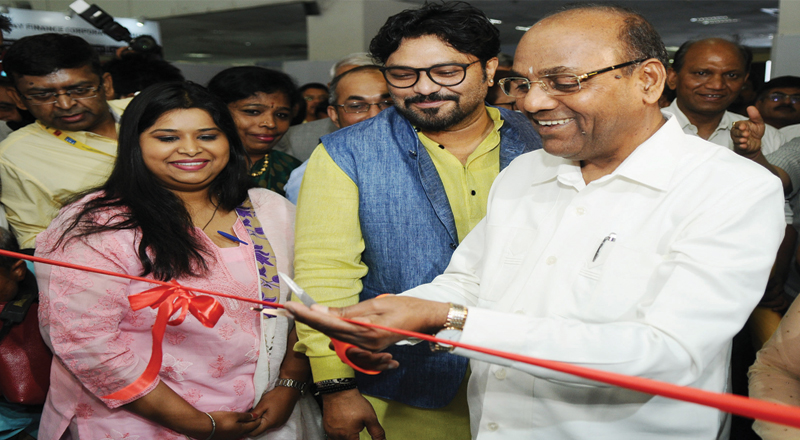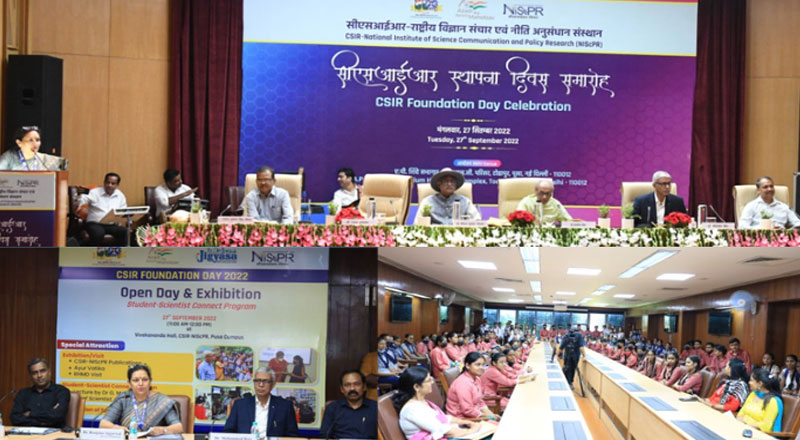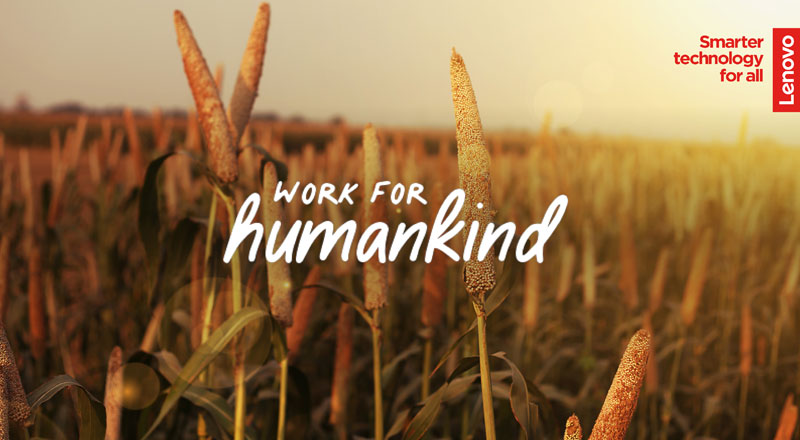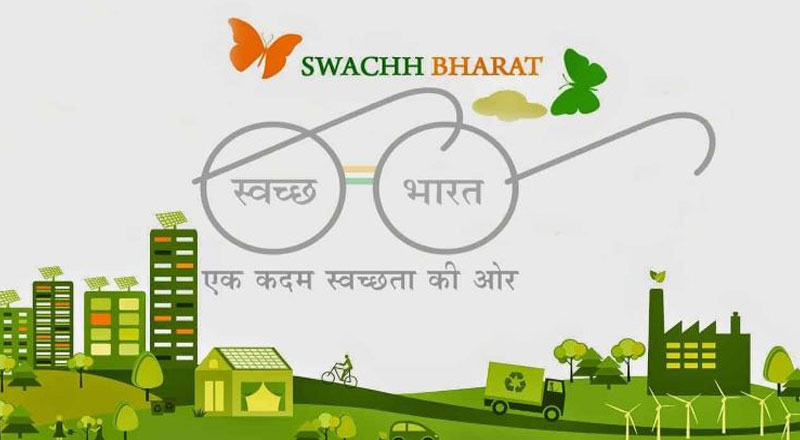The first CSR Fair focused on showcasing CSR activities and sharing best practices with all stakeholders
Inaugurating the CSR Fair 2017, Anant G. Geete, Union Minister of Heavy Industries and Public Enterprises said that the Swachata Abhiyan is running successfully just because of the active participation of CPSEs. Union Minister Anant Geete exhorted upon the CPSEs to focus on core areas of social sector especially the Swachata Abhiyan, education and drinking water on priority basis.
In his welcome address, Dr Madhukar Gupta, additional Secretary, Department of Public Enterprises highlighted the importance of this event and appreciated the overwhelming response of the participants.
The minister said it is just because of the lack of sanitation facilities in our rural areas school that is aggravating the school dropout cases of girls. Geete said lack of basic infrastructure facilities in rural areas is hindering the quest of students for secondary and higher education as there is no dearth of either funds or resources in our country and hence CSR activities should be oriented in this direction
.
On this occasion Minister of State for Heavy Industries and Public Enterprises, Babul Supriyo lauded the role of CPSEs in fostering the CSR measures satisfactorily.
The objective of fair was to provide a leading platform to corporate leaders, organizations, implementing agencies and business experts to identify practical solutions for the problems concerning the participatory implementation of CSR projects at the ground level. Besides, this is to brainstorm a way forward to integrate CSR into core business values of the corporate houses, and to give an opportunity to network and build mutually enriching strategic relationships with various stakeholders and key partners.
This mega event was being organised by the Department of Public Enterprises, Ministry of Heavy Industries and Public Enterprises; PHD Chamber in collaboration with ONGC, to provide a platform to all stakeholders, including central ministries/departments, CPSEs/state PSUs, private companies, NGOs/foundations etc. to showcase their CSR activities, sharing of their best practices and also an opportunity to connect with other stakeholders.
The event saw launch of CSR Compendium, an exhaustive review of success stories of CSR initiatives of CPSEs/state PSUs, private companies, and NGOs/foundations.
The CSR Fair 2017 objective was to provide a leading platform to corporate leaders, organizations, implementing agencies and business experts to identify practical solutions for the problems concerning the participatory implementation of CSR projects at the ground level. Besides, it helped in giving an opportunity to network and build mutually enriching strategic relationships with various stakeholders and key partners.
On this occasion the success stories of creative and innovative CSR interventions were shared and stakeholders were sensitized about leveraging CSR for competitive advantage.
In the realm of business sustainability, SEBI has mandated business responsibility reporting for top 500 listed companies based on their market capitalization from April 1, 2016. This move is an effort to improve corporate governance practices and transparency in terms of reporting of socially responsible activities carried out by the business houses.
R.N. Bagdalkar, Director (Human Resources), Bharat Electronics Limited
Would you talk about CSR activities done by Bharat Electronics?
We are a defence public sector working since 1954 and we are into CSR right from the inception of our organisation. For CSR we have identified 7-8 areas which includes: Education, Healthcare, Environmental Sustainability, Rural Development, Protection of Rural Heritage and others. In the last 2 years, we have adopted around 140 government schools and built around 900 washrooms for these schools. We have adopted 3 villages in Yadgir district which is as per Planning Commission, the most backward district. We have taken up sanitation, building of schools, health and education in the district. Apart from that we have also taken up the skill development activity under which we also do apprenticeship which we conduct in our factory. We have adopted 6 ITI’s where we have added vocational courses. This year again we will adopt another 7 ITI’s.
One more thing that we our doing for environment sustainability is doing sewage treatment plant near our Bangalore factory called Dodo Apam Sagar Lake. It is a major work where we are spending about Rs. 13 crore. In the last 3-4 years we have spent about Rs. 82-85 crore on CSR and we will continue to invest in CSR as we believe in giving back to the society.
What is the CSR budget for FY2017-18 and activities where you would be focusing?
Our budget for this year is roughly about Rs. 30 crore and the focus is on adoption of ITI villages and sewage treatment plants. We are also into sustainable development of solar power plants, Swachh Bharat and Clean Ganga. In terms of CSR spend, we first spend on Swachh Bharat and the remaining amount we will invest in Clean Ganga.
Any innovative project that you have undertaken under CSR?
We did an innovative CSR project in Telangana which is agriculture driven and has a mix of agricultural scientist and farmers in the village. The farmer uploads the photograph of the plants and herbs and then it goes to the scientist sitting in the agricultural university. The scientist uploads the information with respect to the kind of treatment to be done every week and this is pasted on the notice board of village panchayat. All this has led to an increase of about 25% in crop yield to the farmers. The project was done in Telangana and it is running for the past 2 years.
Venita Solomon, Manager, MMTC
Would you tell us about CSR activities done by MMTC in FY2016-17?
In FY2016-17 the focus was on Swachh Bharat because as per the mandate of the government, 33% of the funds are to be spent on Swachh Bharat activities. We constructed toilets, drinking water facilities and hand washing facilities for government schools in Orissa and installed hand pumps in remote areas of Uttar Pradesh. The balance amount was used in creating health care facilities in Orissa’s tribal dominated areas. The company also made contribution to National Sports Development Fund and also to Special Olympics. Through NGO Deep Chand Society we have provided tailoring coaching to 25 women and girls in North Delhi.
What is your CSR plan for FY2017-18?
We have 33% allocated towards Swachh Bharat Abhiyan and besides our own CSR policies mention that 20% of your CSR budget will go towards development of sports and the rest would obviously be focused on education, skill development, health and environment conservation.
Would you talk about innovative CSR projects done by MMTC?
The waste generated in MMTC and in MMTC Housing Colony is given to an NGO that specialises in waste management and this NGO collects the waste, does all the shredding and the segregation and also composing. So whatever is produced or the recycle goods are sold and the income proceeds is used for education of the children of the rag pickers. Apart from that we also focusing on the education of their children in various slum areas.
Ravi Bhamniya, Assistant Manager, CSR, Power Finance Corporation
Would you talk about CSR activities undertaken by PFC in FY2016-17?
We have a budget of around Rs. 166 crore for CSR and we are working on 5 thrust areas – renewable energy, sanitation, skill development, environment, sports and people with disabilities. For FY2016-17, we have done renewable, street lighting, sanitation, Swachh Bharat, and Swachh Vidyalaya Abhiyan. We have also contributed to the initiatives of ministry of power as per their requirement. For FY2016-17, we have done a financial contribution of Rs. 55 crore to Swachh Bharat and we had an approval of Rs. 15 crore for skill development and we also have one sanctioned project on rain water harvesting.
Along with NHAI, we are also spending around Rs. 13-14 crore for planting trees near national highway in Nagpur. We are also having projects in the range of Rs. 6 crore on skill development, solar technology and giving financial assistance to companies for solar lightning in the remote and backward areas.
Would you talk about the govt projects related to Swachh Bharat and Skill India?
In the financial year we had Swachh Bharat, Swachh Vidyalaya Abhiyan where we had sanctioned around 200 construction of toilets in government schools in Andhra Pradesh and Rajasthan and that was been done through 2 PSUs and with the help of state government and district authorities. Skill development, we implement through agencies from time to time as we have partners such as CIPET which is a government organisation. We have sanctioned around 34 skill development projects through different training partners in all of this year. Around 34,000 students from underprivileged background have been trained by different partners and we ensure that they get placement.
Dr. Pramod Mohan Johri, Chief General Manager (HR & A), Goa Shipyard Limited
What is Goa Shipyard’s CSR spent in FY2015-16?
We have spent Rs. 3 crore for CSR in FY 2015-16. We started our CSR journey in 2011 when Tata Institute of Social Sciences carried out a survey and the waste. The survey revealed 5 projects that Goa Shipyard will take out for as a long-term (for 5 years). Goa Shipyard focused on: Watershed management programme; Skill development programme; DD development; agricultural program and others.
Please name CSR projects that you have implemented in FY2015-16?
In FY2015-16, we produced vegetable and we market all vegetables to 5 stars hotels in Goa through organic farming. We have developed this model for the first time and for this we have made 5 societies. In these societies, we have women who contribute their land and we provide seeds and fertilisers. We produce chilli, brinjal and many other vegetables. In dairy development we have provided poor farmers with cows and this is Kamdhenu program in Goa. In this 25% of total outlay was from government and 75% contribution was from Goa Shipyard. This has not only given milk but also provided cow dung and gas for cooking which has helped society at large.
What is your CSR plan for FY2017-18?
In 18 districts, water level is going down so we are digging trenches so that water is arrested and there is proper accumulation of water. There are around 25,000 trenches so when water is coming from the high level it is arrested water table grows up. The other thing was with the school dropouts, in Goa the shipbuilding is a major industry and ship is built by fabrication. The school dropout boys are trained in fabrication so that they are employable. Around 80 boys have got employment in ship building industry.
Are you working with NGOs for your CSR program?
Dairy development and agricultural are being managed by Tata Institute of Social Sciences (TISS) and these are provided at places where tribal’s are residing in Goa and at other places they are doing training and development.
Dr B.K. Ranganath, Director, CSR, Antrix Corporation Limited
What is the CSR spent that you have done in FY2016-17?
The total budget is about 60.34 crore that we have spend for CSR activities like sanitation and Swachh Bharat Abhiyan where we are building community toilets as well as school toilets and sewage water treatment. We have done another major work by rehabilitating physically challenged people in Karnataka and as well as in Sriharikota. We have adopted one village in Dholpur district where the focus is on integrated sustainable development area. We have also done health care education and skill development activities in 2016.
Would you talk in detail about the model village?
The model of village development in Dholpur district is selected for 3 years and we have completed one year of development activity. It is basically a holistic and integrated approach for tribals as well as the natural resources management. We are concentrating on basic facilities like providing drinking water, sanitation and solar light to the village. We are almost reaching a stage where we can develop the village as an ODF. We are concentrating on rainwater harvesting and women empowerment thereby focusing on holistic development thereby making it a model village.
What is your plan for FY2017-18?
In FY2017-18 we are continuing with Swachh Bharat Abhiyan. We would like to concentrate more on the government where we can provide community toilets and we would also like to take more number of villages based on the result we get from the Dholpur district also some of the important activities like water recycling.
M.D. Varghese, GM (IR) & Head (CSR), Cochin Shipyard
Would you tell us about Cochin shipyard CSR activities?
Coaching Shipyard is a government of India company under Ministry of Shipping and we have been doing very good and in terms of our business propositions as we are profitable for the last 22 years. We have spend Rs. 40 crore towards various big and small CSR project mainly in and around Cochin and across state of Kerala because we operate from Kerala.
Conventionally our CSR activities are basically on health education and community development. In FY2016-17, we have spent Rs. 7.22 crore towards CSR project and for FY2017-18 we are investing around Rs. 8.72 crore towards various already approved CSR projects. We are contributing 33% to Swachh Bharat. We have conducted various health programs, blood donation program and also contributed to cancer patients in terms of money and medicine. Also under the platform called WIPS (women in public sector) they conduct lots of women oriented development program and we support them through CSR. There are some projects where we work with member of parliament for local development schemes. We have installed MRI facilities in the hospital where we have contributed Rs. 1.5 crore rupees, a local MP contributed Rs. 1.5 crore and another MP also contributed for this scheme scheme. So together it was around Rs. 6 crore. Now we are going for a linear sort of Cancer chemotherapy facility and we are also contributing.
Verticals where we are focusing in FY2017-18?
33% will go for Swachh Bharat that is towards drinking water, solar power plants and these are the basic initiatives we are doing. The remaining amount will be utilised towards health and education.
Lieutenant CDR Vikrant Malhan, Central Coalfields Limited
CCL is top 5 tender in CSR for FY2016-17. What’s your CSR vision?
Our chairman Gopal Singh has a very clear vision that unless we give it to the society the society cannot prosper. CCL focuses on unconventional CSR activities which are offbeat which are not taken up by many CPSEs.
You are talking about football being one of the unique CSR activity so what is the CSR plan with respect to sports?
We have started the mission Olympic 2024. Mission Olympic 2024 is to empower the youth and children of Jharkhand in our academy and getting trained from various Olympic disciplines which includes football, wrestling, archery, athletics and Taekwondo so we are concentrating on 8 to 10 year old children across Jharkhand providing them the training that is needed to be an Olympic player and giving them first class training in our academy which are run through CSR.
What is the CSR investment for FY2016-17?
There is no barrier when it comes to unique initiatives which are concerning the rural people of the rural locations. We have carried out extensive mine water utilisation and used expensive technology by making water drinkable and portable. We are also concentrating on bridging the demand-supply gap between paramilitary and arm forces by giving the youth proper training into various disciplines which make them appear for various UPSC and various state level civil service exam. We also have a Unique Academy called CCL Ke Lal and CCL Ki Ladli and Academy preparing for IIT. In fact we have shown splendid result of having 8 out of 11 children selected for IIT.
I see not many CPSEs taking about unique initiatives related to CSR. Why did CCL focused on these unique initiatives?
One has to be concentrated to grass root and real time requirements to challenges that people face. Our chairman Gopal Singh is of the firm opinion that all the activities that happen to be carried out should be unique because most of them are coming from the requirement of basic needs which are human being would require and therefore we are very proud that our conventional activities have become a support amongst organisations. In fact some of the public sectors which are not doing well if but if they adopt Kayakalp Model we are sure that they could transform themselves from what they are to what they could be.
Dr Sudhir Gupta, National Advisory Board Member, Sarthak Educational Trust
Would you tell us about the projects you are doing for the disabled people?
Sarthak Educational Trust has been in existence for the last 9 years and we are working with disabled people which includes visually handicapped and hearing impaired as well as automatically challenge in the second vertical is the early intervention that is 0 to 3 year children where we try to minimise the disability by early inclusive education where we are trying to educate disabled people along with the normal children in the schools of Delhi government.
How big is Sarthak Education Trust in terms of reach?
We are all across India as we have presence in Hyderabad, Mumbai, Pune, Jaipur, Lucknow, Delhi, Ludhiana and Chandigarh. We are trying our best to start new centres in Calcutta, Chennai and Mumbai and hopefully by the end of 2020, we would be present in almost all the states of India. Till now we have trained almost 5,000 people in PWD from various kind of disabilities majorly in 3 centres – IT, retail and hospitality.
What is your CSR plan for FY2017-18?
We want to increase our spent and we also want to also start more and more centres. We are trying our best to partner with Government of India and with various corporates. We don’t want to compete with NGOs but we want to work with NGO working in this field to join hands so that benefits reach the last person in the village who is disable. We want to include them and empower them so that they are on their feet.
Pravin Prashant
pravin@spoindia.org





